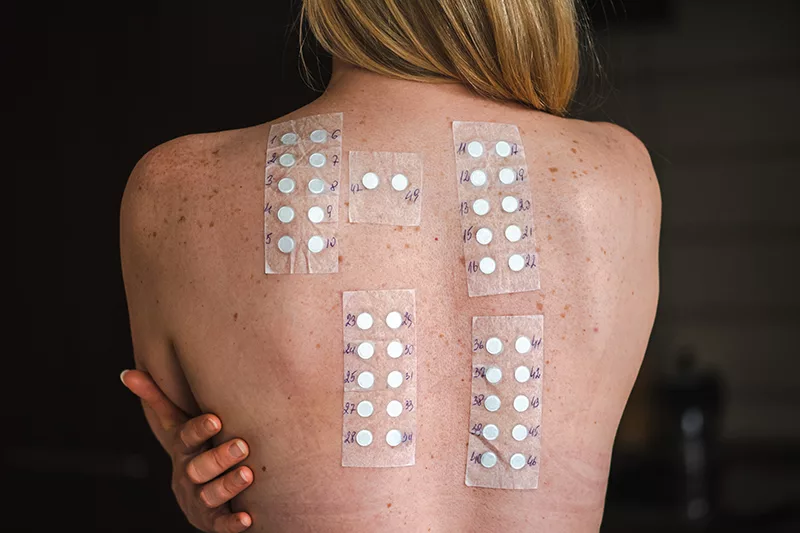
For people with allergies, life can be tough. Symptoms like sneezing itchy eyes, or worse can make you miserable. When you’re feeling this bad, you want to feel better fast. This is where allergy testing and shots come in. But do they work? Let’s take a closer look.
What is allergy testing?
Allergy testing helps find out which specific things, called allergens, are causing your allergic reactions. The most common way to test is the skin prick test. In this test, doctors put tiny amounts of possible allergens on your skin on your forearm or back using a small needle. If you’re allergic to something, you’ll see a small bump or red spot where they tested.
Another way to test is through a blood test. This test checks how much of certain antibodies you have in your blood that react to allergens. Doctors often use this test if you have a skin problem or are taking medicine that might mess up a skin test.
What are allergy shots?
If your allergy test comes back positive, your doctor might recommend allergy shots also called immunotherapy. These shots have tiny amounts of the allergens that set off your symptoms. The goal is to increase your tolerance to these allergens, which can decrease or even get rid of your symptoms as time goes on.
Are allergy shots worth it?
Allergy shots can make a big difference for people with severe allergies who don’t get much relief from over-the-counter medications. The shots can reduce allergy symptoms like hay fever, asthma, and insect bites, and they may even prevent new allergies from developing.
Keep in mind that allergy shots need time to work. You’ll need to receive several injections for several months to allow your immune system to gradually build up a tolerance to the medication. Some individuals might experience slight redness or swelling at the injection site.
The main question is: are these injections worth getting? If allergies disrupt your everyday life, shots can make a big difference. They’re not a temporary solution, like OTC meds; and they might help you feel better for years even after you stop using them. But make sure to get tested first and discuss it with your doctor.


